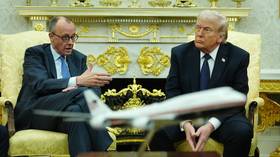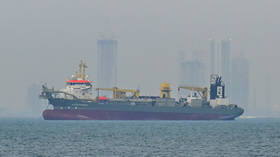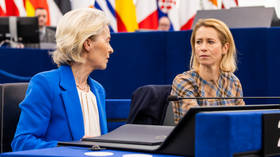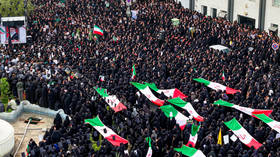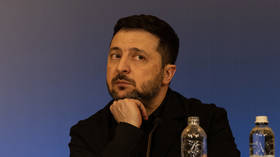Time for alternative parties in Germany, not ‘lesser evil’
Around one-third of Germans did not show up to vote in the Parliamentary election, while a large number of those that did are not represented. According to journalist Manuel Ochsenreiter, Germans no longer wish to vote for the ‘lesser evil.’
Merkel’s conservative Christian Democratic Party may celebrate the opportunity to continue with its major initiatives due to a large majority in the Parliament. But they would be mistaken in thinking that their victory is a true reflection of Germany’s political sentiments, according to Ochsenreiter, the editor-in-chief of the German monthly news magazine, Zuerst.
RT:With Merkel coming out a winner again, will her
government be strong enough this time around to push her policies
through?
Manuel Ochsenreiter: Yes, I think they won’t change too
many things, if we compare the next four years of Angela Merkel
to the last four years. We have to see an all-important decisive
project of Angela Merkel…she has a vast majority in the
Parliament, who support the big decisive projects. Let me give
you two examples. The first example is how to rescue the Euro –
the Euro rescue project. Another example is in foreign politics:
to send German soldiers on foreign missions. It will not change
so much, because in the decisive projects she has the majority.
RT:The brand new party, Alternative for Germany, almost got into Parliament with 4.7 percent of the vote – was this a surprise to you?
MO: When we talk about the AFD, we have to see that we are
really talking about here with the oppositional party. I told you
before that for the big projects, like the Euro rescue project,
Merkel can rely on a vast majority in the Parliament. The AFD is
a Euro-skeptic party; it would be a new party. We know from polls
that in Germany almost 20-30 percent of the people would support
a Euro-skeptic party, so it’s not a surprise they almost had 5
percent. For a lot of people it’s a pity that they didn’t get
into the Parliament. But of course, also for Germany, it is a way
of democracy also to give a voice to those people who oppose
Angela Merkel’s politics towards the European Union and against
the rescue project of the Euro currency.
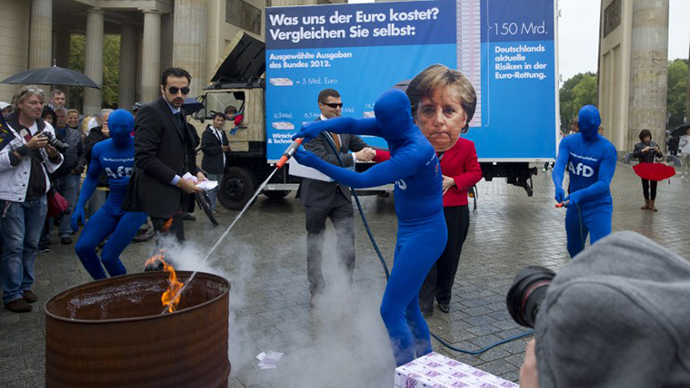
RT:So, in your opinion, why are we seeing so many non-mainstream parties gain strength in Germany?
MO: Firstly, we have to analyze the election we had
yesterday [on Sunday]. The first point is that we have a huge
party nobody’s talking about – and that is the party of the
non-voters. Almost one-third of the Germans didn’t participate in
the elections yesterday. In 2009 there were a little bit more who
didn’t participate. So, almost one-third of the people aren’t
represented in the Parliament. Then we have to see that almost 15
percent of the people who participated yesterday are not
represented in the Parliament. This means there are all the
voters for the Euro-skeptic party AFD; these are the voters for
the Liberal Party and for the other parties who reached around 6
percent. So, we see that this so-called ‘huge majority’ for
Angela Merkel is not so huge anymore, when we take into account
that so many people are not represented in our Parliament. And
this is a sign of crisis. A crisis of democracy in Germany and
it’s time for alternative parties who speak out for what those
people think and what those people mean. And they don’t
always want to vote for the lesser evil. They want to vote for a
party they can support with their heart. And so I think, yes,
it’s time for alternative parties, for example – the Alternative
für Deutschland.
The statements, views and opinions expressed in this column are solely those of the author and do not necessarily represent those of RT.



